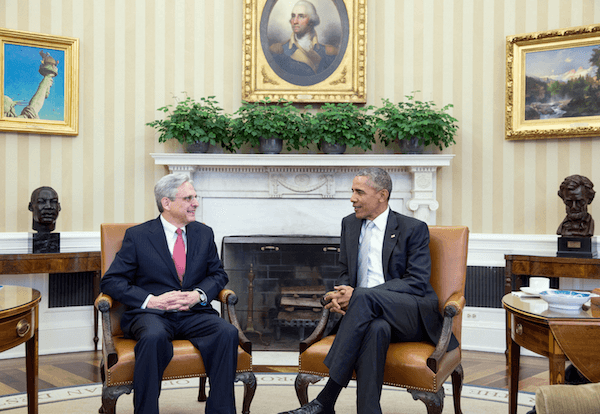Wallace B. Jefferson, a former Texas Supreme Court now in private practice, has been rebuffed for now in his effort to have the US Supreme Court throw out a ruling from his former bench that casts doubt, though in preliminary fashion only, on the breadth of the 2015 nationwide marriage equality ruling. | TEXAS STATE DIRECTORY
On December 4, the US Supreme Court, without explanation, rejected a petition from the City of Houston seeking review of the Texas Supreme Court’s June 30 ruling in Pidgeon v. Turner, which had cast doubt on whether the city was obligated under Obergefell v. Hodges, the high court’s 2015 marriage equality ruling, to provide same-sex spouses of Houston employees the same employee benefits offered to different-sex spouses.
A decision by the Supreme Court to deny review of a case is not a ruling on the merits of the case, though the court’s action this week did excite some fevered Internet consternation. Here, it most likely means that there were not at least four members of the court — the number required under its rules to grant a petition for review — who thought it should intervene in a lawsuit still ongoing in the state trial court.
The Supreme Court’s action should not be construed as a decision approving the Texas Supreme Court’s ruling. It is consistent with the court’s tight control of its docket, under which it sharply limits the number and types of cases it takes up for review. It rarely inserts itself into a case that has not received a final disposition in the lower courts.
Texas high court ham-handed on what marriage equality means, but case not yet resolved locally
Retired Texas Supreme Court Justice Wallace B. Jefferson and his law firm, Alexander Dubose Jefferson & Townsend LLP, filed the petition on behalf of Mayor Sylvester Turner and the City of Houston on September 15, several weeks after Lambda Legal had filed a new federal district court lawsuit on behalf of some Houston employees whose same-sex spouses are receiving benefits but fear losing them in the state court litigation.
Lambda’s suit was quickly dismissed by the federal trial judge as not “ripe” for review because the plaintiffs are currently receiving their benefits and it was likely, in the judge’s view, that the state trial court would rule the benefits were legal in light of the current state of the law.
The Texas Supreme Court’s June 30 decision, which reversed a ruling by the Texas Court of Appeals, was not a final disposition of that case. Instead, it sent the case back to the trial court in Harris County for a hearing on the original claim by plaintiffs Jack Pidgeon and Larry Hicks, Republican anti-gay activists, that the city had unlawfully extended employee benefits eligibility to same-sex spouses of municipal employees in 2013.
Pidgeon and Hicks first started litigating against the city when then-Mayor Annise Parker extended benefits eligibility by executive action after receiving an opinion from the city attorney about the impact of the US Supreme Court’s 2013 ruling in US v. Windsor, which struck down the Defense of Marriage Act’s ban on federal recognition of same-sex marriages. Pidgeon and Hicks argued that under Texas statutory and constitutional law at the time, it was illegal for the city to extend the benefits since the Windsor decision did not address the constitutionality of state laws banning same-sex marriage.
Pidgeon and Hicks had a plausible argument in 2013, enough to persuade the trial judge to issue a preliminary injunction against the city, which promptly appealed. The Texas Court of Appeals sat on the appeal for a few years, waiting for the storm of marriage equality litigation in Texas and throughout the country to play out.
Meanwhile, less than a year after the Windsor decision, a federal trial judge in San Antonio ruled that the state’s ban on same-sex marriage was unconstitutional, but the state’s appeal of that languished in the Fifth Circuit Court of Appeals until after the Supreme Court decided the Obergefell case on June 26, 2015. A few days later, the Fifth Circuit affirmed the trial court’s ruling invalidating the Texas laws banning same-sex marriages. Then the Texas Court of Appeals reversed the preliminary injunction, instructing the trial court to decide the case in accord with the Fifth Circuit’s ruling. And the city resumed providing the benefits, which it has continued to do.
Undaunted, Pidgeon and Hicks asked the Texas Supreme Court to review the Texas Court of Appeals decision, arguing that court erred by instructing the trial court to follow the Fifth Circuit’s ruling because, as a technical matter, state courts are not bound by federal court of appeals rulings, but only by the Supreme Court. In effect, they argued that the city was still bound to abide by the Texas state law banning recognition of same-sex marriages for purposes of public employee benefits, which had never been invalidated in the state courts and, they argued, was technically not declared unconstitutional by the US Supreme Court, whose opinion in Obergefell only directly struck down state marriage bans in the four states of the Sixth Circuit — Ohio, Michigan, Kentucky, and Tennessee.
In September 2016, the Texas Supreme Court ruled that it would not consider Pidgeon and Hicks’ appeal. But that prompted a fervent campaign by Republican Governor Greg Abbott and other GOP elected officials to persuade the court, whose members periodically stand for reelection, to change its mind, stimulating thousands of Texans to flood the court with demands it reverse the Court of Appeals decision. The court ultimately bowed to this pressure, granted review, and issued its June 30 decision.
The Texas Supreme Court agreed that the Texas Court of Appeals should not have treated the Fifth Circuit’s decision as binding on the trial court, and opined further that the Obergefell decision was just about whether same-sex couples could marry as a question of federal constitutional law, not what benefits they were entitled to if they married.
This was palpably wrong, as shown by another Supreme Court ruling, just days prior, in Pavan v. Smith, a case from Arkansas involving parental names on birth certificates, in which the high court made clear that married same-sex couples are entitled to the “full constellation of rights” that go with marriage under the 2015 Obergefell decision.
Pidgeon and Hicks’ lawsuit is still pending in the state trial court and the same-sex spouses of Houston employees are receiving their equal benefits, so it is likely that the Supreme Court justices saw no pressing reason to add this case to their docket. Perhaps they agree with the opinion by US District Judge Vanessa D. Gilmore, who, in dismissing Lambda’s lawsuit, predicted that the state trial court, bound by US Supreme Court precedent in both Obergefell and more recently Pavan, will ultimately reject Pidgeon and Hicks’ challenge to the benefits.






























